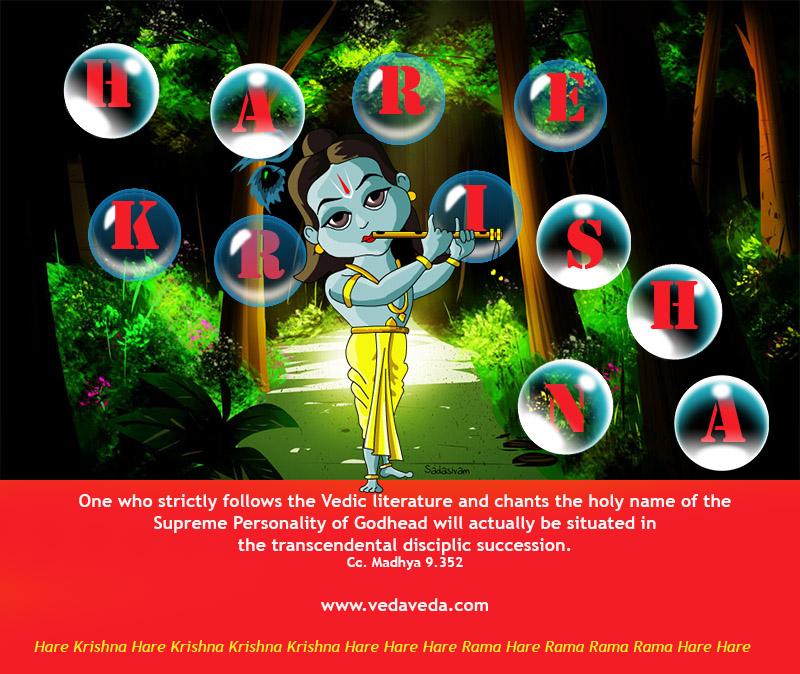
TRANSLATION
In this Age of Kali there are no genuine religious principles other than those established by Vaiṣṇava devotees and Vaiṣṇava scriptures. This is the sum and substance of everything.
PURPORT
One must have firm faith in the process of devotional service and the scriptures that support it. If one hears the activities of Śrī Caitanya Mahāprabhu with this faith, he can be freed from his envious position. Śrīmad-Bhāgavatam is meant for such nonenvious persons (nirmatsarāṇāṁ satām). In this age a person should not envy Śrī Caitanya Mahāprabhu's movement but should chant the holy names of Hari and Kṛṣṇa, the mahā-mantra. That is the sum and substance of the eternal religion, known as sanātana-dharma. In this verse the word vaiṣṇava refers to a pure devotee and fully realized soul, and the word vaiṣṇava-śāstra refers to śruti, or the Vedas, which are called śabda-pramāṇa, the evidence of transcendental sound. One who strictly follows the Vedic literature and chants the holy name of the Supreme Personality of Godhead will actually be situated in the transcendental disciplic succession. Those who want to attain life's ultimate goal must follow this principle. In Śrīmad-Bhāgavatam (11.19.17), it is said:
śrutiḥ pratyakṣam aitihyam
anumānaṁ catuṣṭayam
pramāṇeṣv anavasthānād
vikalpāt sa virajyate
"Vedic literature, direct perception, history and hypothesis are the four kinds of evidential proofs. Everyone should stick to these principles for the realization of the Absolute Truth."

